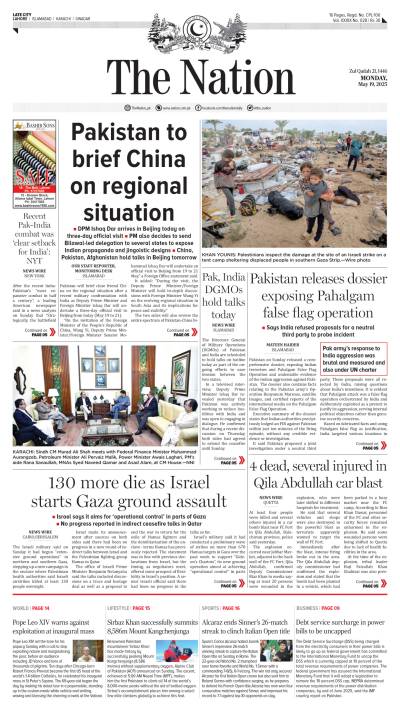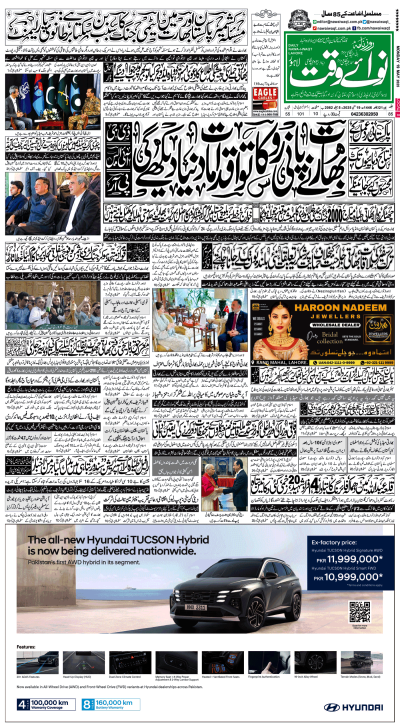In an earlier article, I pointed out some of the mistakes that the US had committed in handling the situation in Afghanistan in the aftermath of the terrorist attacks of 9/11. Even if one supports the questionable US decision to invade Afghanistan in October, 2001, the goals that the US set for itself in Afghanistan were too ambitious. While the US was justified in trying to defeat and eliminate Al Qaeda, its initial aim to impose a government of its own choice on the Afghan people under the Bonn agreement and to rebuild Afghanistan in accordance with its own preferences and cultural values proved to be far beyond its capabilities. Further, Washington made the cardinal mistake of pursuing its goals in Afghanistan through a flawed strategy which relied too heavily on military means to the neglect of its political elements.
This disastrous combination of over-ambitious goals and a flawed strategy predictably failed to achieve most of American aims in Afghanistan. Its only achievement was a modicum of success in defeating and degrading Al Qaeda. As for the rest, Washington has been faced with determined resistance in the form of the Taliban-led insurgency which has grown in strength with the passage of time. Consequently, the US after paying a heavy price in blood and treasure is now engaged in an organized retreat from Afghanistan.
Pakistan unfortunately has made its own share of blunders in Afghanistan over the past several decades. The disastrous consequences of our flawed policies in Afghanistan continue to haunt us, both internally and externally. It is essential to understand these policy blunders so that we become wiser in handling our relations with Afghanistan in the future. After all, nations that do not learn from history are condemned to repeat it.
Pakistan made an honest effort to broker a peace deal among the various jihadi organizations in Afghanistan through the Peshawar Accord after the fall of the Najibullah regime in April 1992. Unfortunately, the unwillingness of late President Burhanuddin Rabbani to stick to the provisions of this agreement or to the later Islamabad Accord of 1993 led to the commencement of a civil war in Afghanistan which continues till today. Ideally, both Pakistan and Iran should have cooperated with each other in facilitating the restoration of durable peace and stability in Afghanistan. Unfortunately, instead of following complementary policies in developing links with Afghanistan, they saw their relations with it as a zero-sum game. While Iran supported the Northern Alliance led by Ahmed Shah Massoud, Pakistan initially supported the Pashtun leader Gulbadin Hikmatyar and later the Afghan Taliban after their emergence as an organized group at the end of 1994. These misconceived policies prolonged the internal armed conflict in Afghanistan and enabled Al Qaeda to entrench itself in the country leading ultimately to the tragic events of 9/11.
In the process, the control on the formulation and execution of the operational Afghanistan policies in Iran and Pakistan was lost by their political leaders to their security and intelligence agencies. These agencies because of their very nature believed in over-insuring their perceived national interests instead of pursuing policies of mutual understanding and accommodation in settling their differences. It was not surprising, therefore, that a half-hearted attempt by Islamabad and Tehran in July 1998 to encourage and facilitate a settlement between the Afghan Taliban and the Northern Alliance came to naught because of bad faith by the Afghan Taliban who launched a surprise military offensive against the Northern Alliance capturing most of Afghanistan excepting parts of Badakhshan province.
The killing of the Iranian Consulate officials in Mazar-e-Sharif after its capture by the Taliban in 1998, despite earlier assurances for their security, brought Iran and Afghanistan to the brink of an armed conflict. Had there been the outbreak of an armed conflict between Afghanistan and Iran at that time, the possibility of Islamabad being sucked into it could not be totally ruled out leading to cataclysmic consequences for regional stability and Pakistan’s security. Fortunately, wiser counsel prevailed in Tehran. Iran’s political leadership remained content with verbal protests.
Pakistan’s steadfast support for the Taliban government in Afghanistan continued till 9/11 when we were forced to bring about a total reversal of this policy under the threat of the American ultimatum. Pakistan paid a heavy price for its pro-Taliban policy of the 1990’s. We were isolated internationally as only Saudi Arabia and the UAE recognized the Afghan Taliban’s government besides us. Even a friend like China refused to recognize the Taliban government. Our support for the Taliban, who espoused a retrogressive and obscurantist interpretation of Islam, tarnished our image throughout the world.
As pointed out earlier, this policy also badly damaged our friendly relations with Iran. Our refusal to reach an understanding with Iran on the situation in Afghanistan during the second half of 1990’s left it with no choice but to build up an alliance against us with Russia, India and some of the Central Asian Republics like Uzbekistan and Tajikistan. Within Afghanistan, our pro-Taliban policy alienated us from most of the non-Pashtuns. Further, our pro-Taliban policy encouraged religious extremism in Pakistan and brutalized our society.
A policy which isolated us regionally and internationally besides alienating us from half of the population of Afghanistan was simply unsustainable. It was likely to crumble with the slightest turn of events. This is precisely what happened after the terrorist attacks of 9/11. Overnight, we turned from being the ardent supporters of the Afghan Taliban to their opponents in alliance with the US. While this may have saved us from the US wrath, it alienated us from the Afghan Taliban and Pashtuns. Thus, while our pro-Taliban policy of 1990’s cost us the sympathy and support of the non-Pashtuns in Afghanistan, our U-turn after 9/11 made us lose the friendship of the Pashtuns in Afghanistan leaving us with few friends in that country. Not only that, our willingness in compliance with the US demands to take action against our own tribesmen to prevent them from going to the help of their tribal brethren across the Durand line in the fight against ISAF troops, made them redirect their fury through terrorist attacks against targets all over Pakistan.
When history is written, our Afghanistan policies of the past two decades will be judged as amongst Pakistan’s worst foreign policy blunders. We must draw the right lessons from our past experience for our future guidance. Firstly, we must follow a policy of non-interference in Afghanistan’s internal affairs and let the Afghans decide their own destiny. The lesson of history is that no foreign power single handedly has been able to establish its control over Afghanistan on a sustainable basis. Secondly, we must understand that neither the Pashtuns nor the non-Pashtuns alone can rule Afghanistan in conditions of durable peace and stability. The restoration of durable peace and stability in Afghanistan would require national reconciliation and a power-sharing formula among the various Afghan communities and groups including the Taliban and the non-Taliban forces. This power-sharing arrangement must be worked out through an intra-Afghan dialogue free of foreign interference.
Thirdly, Pakistan-Iran cooperation is an indispensable condition for durable peace in Afghanistan. Unless the leaders of the two countries take special care, the danger of these two countries sliding into the blunders of the 1990’s cannot be totally ruled out. The internal Afghan political settlement ideally should enjoy the support of Afghanistan’s neighbours and major powers. A neutral status for Afghanistan might be helpful in securing such regional and international support.
The writer is a retired ambassador and the president of the Lahore Council for World Affairs.
Email:javid.husain@gmail.com





